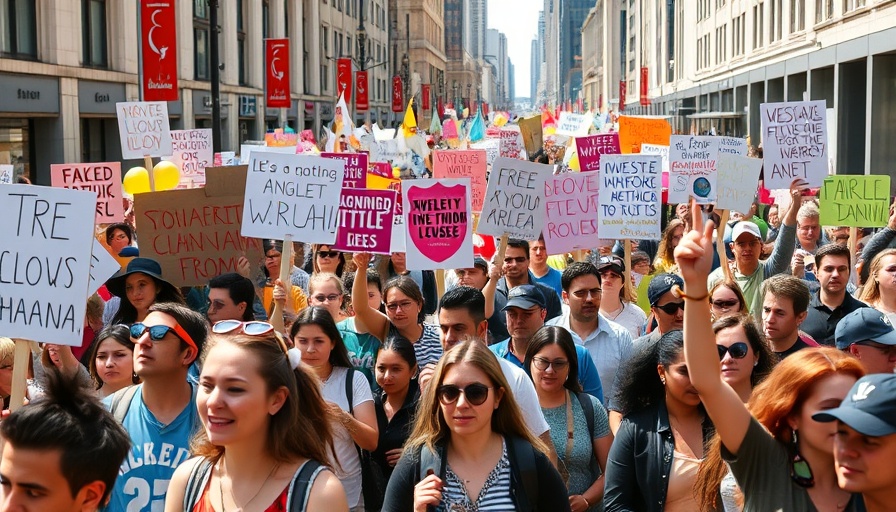
Rallying Voices Against Military Actions
On a warm Saturday afternoon, a gathering of over 100 Philadelphians rallied at City Hall, marching through the bustling streets of Center City to voice their dissent against U.S. and Israeli military actions in the Middle East. Organized by a coalition of 18 activist groups, including the Philadelphia chapter of the Black Alliance for Peace and Students for Justice in Palestine, the event was a call to raise awareness about the impacts of American imperialism and the plight of the Palestinian people.
The Heart of the Protest
Originally scheduled for earlier in the week, the protest was moved to provide relief from a heatwave that had gripped the region, emphasizing the determination of participants to be heard despite challenges. Holding signs emblazoned with slogans like "Stop genocide, free Palestine" and "Hands off Iran," protesters marched toward Rittenhouse Square, chanting and engaging bystanders in their cause. Joel Northam, a participant in the protest, expressed, "The U.S. and Israel have not stopped. They want regime change in that country [Iran], and we do not believe they will stop until they get it." His sentiments echoed widespread frustrations among those who feel misinformed about the realities in the region.
Significance of Community Activism
This protest was not just another event in Philly's legacy of activism; it is part of an ongoing dialogue about social justice and human rights. The conflict between Israel and Iran escalated earlier in June, marked by significant military operations that triggered new waves of protests across both the United States and internationally. Demonstrators shared concerns regarding the increased casualties in Gaza, a situation that gained intensity following a series of Israeli military attacks in response to perceived threats from Hamas.
Transformative Conversations
Craig Thompson, another attendee, suggested that the ultimately peaceful nature of the protest highlights a desire for dialogue over violence. "There are definitely people that don’t know about the situation there [in Iran and Palestine], so we’re out here to try to let people know what’s really happening because they’re being lied to," he shared. Protests like this are vital in educating the community about critical international issues, encouraging participants and observers alike to critically engage with current events.
The Emotional Undertone
While waving flags and chanting slogans, many participants engaged in poignant acts that went beyond mere words. At the rally, a speaker dubbed "Israel’s worst nightmare" condemned military actions, emphasizing the broader context of oppression faced by people in the region. In a shocking demonstration of their frustration, some protesters attempted to burn a U.S. flag, which ultimately failed to ignite, prompting them to tear it apart instead. Such acts reveal the intensity of emotions surrounding these issues, where participants feel compelled to exhibit their discontent physically.
A Call for Awareness and Action
These grassroots efforts emphasize the importance of critical engagement and action within the community, particularly among Philadelphia's populace. As the number of civilian casualties in Gaza continues to rise, events such as this protest provide a platform for people to connect, learn, and advocate for peace and understanding.
For local residents, especially those in higher income brackets who may feel distanced from these issues, it's paramount to acknowledge the implications of U.S. foreign policy and the ongoing struggles in the Middle East. The voices raised in City Hall should resonate deeply, prompting reflection on how informed citizens can influence change.
 Add Row
Add Row  Add
Add 




Write A Comment